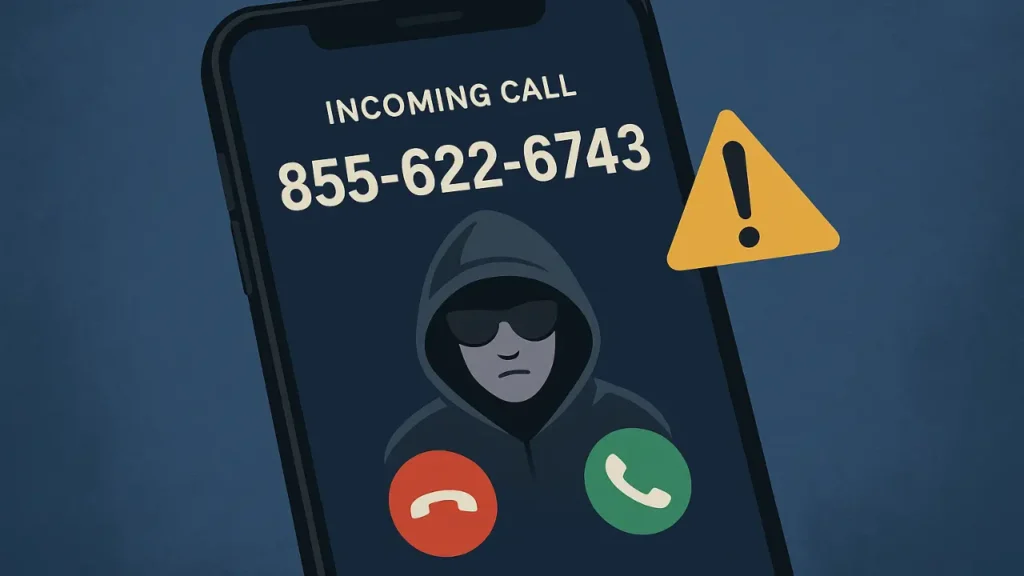Introduction to the 1-346-230-1697 Scam Call
Have you recently received a call from the number 1-346-230-1697? If so, you’re not alone. Many people are reporting suspicious calls from this very number, raising alarms about potential scams lurking on the other end of the line. It’s crucial to stay informed and cautious in today’s world, where scammers employ increasingly sophisticated tactics to deceive unsuspecting individuals. Before picking up that phone, let’s dive into what you need to know about this scam call and how to protect yourself effectively.
How the Scam Works and What to Watch out for
Scammers often use numbers like 1-346-230-1697 to lure unsuspecting victims. They typically employ tactics that create a sense of urgency, making you feel pressured to respond quickly.
You might receive calls claiming you’ve won a prize or owe money on an account you don’t even recognize. This is designed to catch you off guard and elicit emotional responses.
They may also ask for personal information under the guise of verifying your identity. Stay alert if they request sensitive details such as your Social Security number or bank information.
Another red flag is when callers speak overly fast or sound scripted. Genuine representatives usually provide clear, concise information without rushing through it.
Listening closely can help identify their deceptive methods early on, so trust your instincts if something feels off with the call.
Potential Dangers of Answering this Number
Answering the number 1-346-230-1697 could expose you to various risks. Scammers often employ tactics designed to manipulate and frighten individuals into sharing personal information.
Once on the line, they may pose as government officials or tech support agents. Their goal is typically to gain your trust quickly. They’ll ask for sensitive data like Social Security numbers or bank details.
These calls can lead to identity theft, financial loss, and unwanted harassment. If you engage with these callers, they might even sell your information to other criminals.
Moreover, simply picking up the call could result in additional spam calls from different numbers. Scammers often use “spoofing” techniques that make it look like they’re calling from legitimate sources.
Remain vigilant and avoid answering unfamiliar numbers whenever possible. Your safety should always be a priority when dealing with unknown callers.
Protecting Yourself from Scammers
Protecting yourself from scammers starts with awareness. Always be cautious about unknown numbers, especially if they appear suspicious.
Never share personal information over the phone. Scammers often use tactics to create a sense of urgency or fear, pushing you to divulge sensitive details quickly.
Consider using call-blocking apps or features available on your smartphone. These tools can help filter unwanted calls and provide an extra layer of security.
Educate friends and family members about common scams. Sharing knowledge is crucial in creating a safer community for everyone.
Trust your instincts; if something feels off, hang up. It’s better to err on the side of caution than risk falling victim to fraudulent schemes that can have lasting consequences.
Stay informed about recent scam trends by following reliable news sources or consumer protection websites. This proactive approach empowers you to recognize potential threats before they reach you.
Reporting the Scam Call and Taking Legal Action
If you’ve received a scam call from 1-346-230-1697, reporting it is crucial. Document the details first—note the date, time, and what was said during the call. This information can be vital for any investigation.
You should report the number to your phone carrier. They might have additional resources or tools to help block future calls. Many carriers also keep track of fraudulent activity.
Next, consider contacting the Federal Trade Commission (FTC). They take reports on scams seriously and use this data to identify patterns in illegal activities.
State consumer protection agencies are another option. They often provide guidance on how to handle these situations legally.
If you feel threatened or harassed, consult local law enforcement. Taking action not only protects you but helps others avoid similar scams in the future.
Other Common Phone Scams to Be Aware Of
Phone scams come in various forms, each designed to deceive unsuspecting victims. One prevalent type is the IRS scam, where callers impersonate tax officials, claiming you owe back taxes. They threaten legal action if you don’t pay immediately.
Another common tactic involves tech support scams. Scammers pose as representatives from well-known companies, insisting that your computer has a virus and requiring remote access for repairs.
Romance scams are also on the rise. Fraudsters build relationships online only to ask for money under false pretenses.
Robocalls frequently bombard people with offers that seem too good to be true—prizes or free vacations—but they often lead to hidden fees or subscriptions.
Stay vigilant and educate yourself about these schemes; awareness is your best defense against phone scammers lurking in every corner of our digital world.
Conclusion: Stay Informed and Stay Safe
Scam calls can be incredibly frustrating and even dangerous. The number 1-346-230-1697 is just one of many that pose a risk to unsuspecting individuals. By staying informed about common tactics used by scammers, you can better protect yourself from falling victim to their schemes.
Being cautious when answering unknown numbers is essential. If you receive a call from 1-346-230-1697, it’s wise to let it go to voicemail or block the number altogether. Take steps to educate friends and family members about these types of scams as well; sharing information helps create a safer community for everyone.
If you’ve already interacted with this number, consider reporting it through local authorities or consumer protection agencies like the FTC. Taking proactive measures ensures that these scammers are held accountable.
The key takeaway is simple: always stay alert and trust your instincts when dealing with unfamiliar phone calls. Your safety starts with being informed, so remain vigilant against potential threats on your phone line.

